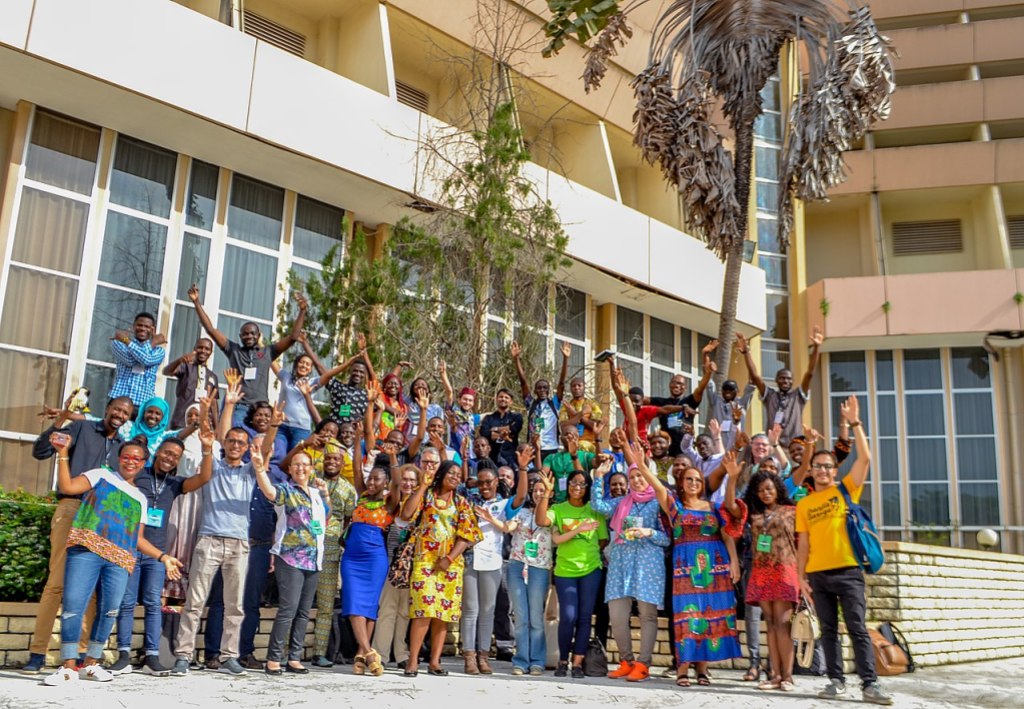
As part of the ongoing Universal Code of Conduct (UCoC) enforcement conversations, the Wikimedia Foundation reached out to a number of communities to hear their thoughts on potential enforcement mechanisms for the global policy. As a part of the team, I had the chance to interact closely with the West African community (Yoruba) on the subject.
When I got the opportunity to take on the role of the Universal Code of Conduct Facilitator for the West African local language communities, I was excited, but also afraid. Africa is a very diverse continent, and West Africa in particular is home to some of the world’s major languages in terms of the number of native speakers. These realities do not translate equally on Wikipedia though, where widely spoken languages like Hausa, Yoruba and Igbo, have some of the smallest Wikipedias.
Moreover, for the ten years that I have been in the Wikimedia movement, I have always known the African communities not to participate really well in global movement discussions, partly due to internet costs and other peculiar circumstances. So there were valid reasons to be worried, but also to plan communications strategically, so that people would not feel stressed or overwhelmed during the cause of this consultation.
Unlike most of the other languages consulted during this process, Yoruba, Igbo, Hausa and Twi Wikipedias do not have standard policies that guide behaviours and contributions on the projects. Policy pages, where they exist, are often replicas of old English language Wikipedia policies, many of which have not even been translated to the local languages. Admin actions are often based on personal judgements or “common sense”, rather than established local policies.
It can be concluded from this observation that, these communities fall under the category of projects that need the UCoC policy the most, as it would eliminate situations whereby, administrators’ have to take actions solely based on their personal judgments or by following the rules of other projects, but based on an established and universally known policies that have been created through an inclusive community consensus.
Community consultations for four West African language communities (Yoruba, Hausa, Igbo and Twi) officially kicked off on the 18th of January and ended on 3rd of March 2021, spanning a period of more than seven weeks. During this period, we reached out to the community through the various platforms that are dedicated to regular community communications, which included: the village pump, social media, online calls, surveys and one-to-one discussions. Overall, more than 90 people engaged with the process, which is a great response rate for the size of these communities.
Generally, the community members supported the UCoC policy, as well as its enforcement within the movement. There were varying ideas on how to set up an effective enforcement mechanism for the policy, most of which typically involve setting up an independent team to investigate abuses. Confidentiality was also a common theme in the feedback and there was a solid consensus for prioritising privacy and anonymity, both for incidents’ reporting and investigations, as against public proceedings which may intensify harassment and negatively impact on the victims.
Consulting the West African communities on this important discussion was a great experience overall and it was fulfilling to listen to different grassroot perspectives and ideas concerning this policy and how it affects different people.
UCoC Facilitators Blog Posts
- Self-governance of older Wikimedia projects – the curious case of Polish Wikipedia
- Consulting the UCoC Enforcement Within an Intercultural Wikimedia Ecosystem
- Lessons from the recent influx of teenagers in the Korean Community: How do we deal with them as active contributors?
- Facilitating Wikimedia Communities in West Africa for the UCoC

Can you help us translate this article?
In order for this article to reach as many people as possible we would like your help. Can you translate this article to get the message out?
Start translation